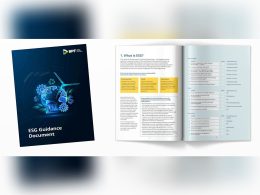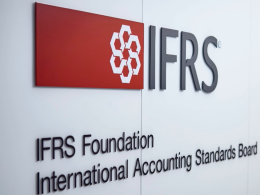The Voluntary Carbon Markets Integrity Initiative (VCMI) has released a new Scope 3 Action Code of Practice, offering detailed guidance on how companies can use high-quality carbon credits to address hard-to-abate Scope 3 emissions. The framework is backed by the International Chamber of Commerce, the We Mean Business Coalition, and former UN climate chief Christiana Figueres.
The Code sets out how businesses can use carbon credits as a supplementary measure—rather than a substitute—for direct emissions reductions. It recommends that by 2040, corporates must have overcome key barriers to decarbonising their value chains, aligning their emissions trajectory with net-zero targets.
“Addressing Scope 3 emissions is one of the most pressing challenges in corporate climate action, yet many businesses lack the tools and frameworks to act effectively,” said Mark Kenber, Executive Director of the VCMI. “The Scope 3 Action Code of Practice provides a practical, science-aligned solution to help companies close the gap between ambition and action.”
Under the guidance, carbon credits are seen as a temporary instrument to bridge the gap in emissions reductions—ensuring that climate action is financed annually across the globe. The VCMI has also updated its Foundational Criteria within the broader Claims Code of Practice to reflect evolving best practices and promote wider corporate engagement.
The new framework arrives as research points to rising emissions in corporate supply chains. A study by Inverto, part of Boston Consulting Group, showed that FTSE 100 firms emitted 62 million additional tonnes of CO₂ in their supply chains last year, raising total Scope 3 emissions to 3.3 billion tonnes—a 3% year-on-year increase. Additional data from MSCI warns the global Scope 3 action gap could expand fivefold by 2030 without targeted intervention.
To further accelerate efforts, the VCMI has launched a Scope 3 Action Challenge, calling on businesses to adopt credible climate solutions, enhance transparency in reporting, and commit to collective decarbonisation efforts. The challenge is also supported by the International Chamber of Commerce.
The UK Government has taken note of VCMI’s efforts in its recent consultation on the use of carbon credits within corporate climate strategies. The six-step guideline, aimed at ensuring credibility and avoiding greenwashing, explicitly references VCMI’s Codes of Practice as a model for best practice.
Christiana Figueres, Founding Partner of Global Optimism and former Executive Secretary of the UNFCCC, welcomed the development, stating: “This is not a licence to delay, but a framework of integrity… High-integrity credits are not a loophole—they are a lever of change.” The VCMI framework is designed to be integrated into policymaking, offering a credible path for governments and regulators to embed Scope 3 action into national and regional decarbonisation plans.





















